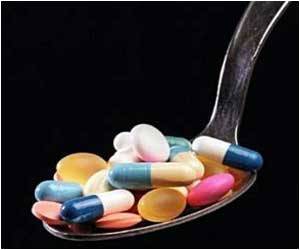Certain antidepressants are linked to an increase in Clostridium difficile infection risk, shows study published in BMC Medicine.

Firstly the team studied Clostridium difficile infection in people with and without depression and found that people with major depression had a much higher chance of CDI (a 36% increase) than people without depression. This association held for a variety of depressive disorders and nervous or psychiatric problems. Age and family support also impacted risk of CDI. Older, widowed Americans were 54% more likely to catch C. difficile than their married peers. Just living alone increased risk by 25%.
Secondly they looked to see if there was an association between antidepressant medication and hospital acquired CDI. They found that use of most types of antidepressants did not affect CDI risk - out of the twelve drugs tested only mirtazapine and fluoxetine increased risk of CDI, in each case the risk was doubled.
People who have been prescribed these types of anti-depressants need to keep taking them unless otherwise advised by their physician. The researchers stress that it is not yet known whether the increase in CDI is due to microbial changes in the gut during depression or to the medications associated with depression.
Dr. Mary Rogers who led this study explained, "Depression is common worldwide. We have long known that depression is associated with changes in the gastrointestinal system. The interaction between the brain and the gut, called the "brain-gut axis" is fascinating and deserves more study. Our finding of a link between depression and Clostridium difficile should help us better identify those at risk of infection and perhaps, encourage exploration of the underlying brain-gut mechanisms involved."
Source-Eurekalert
 MEDINDIA
MEDINDIA




 Email
Email






